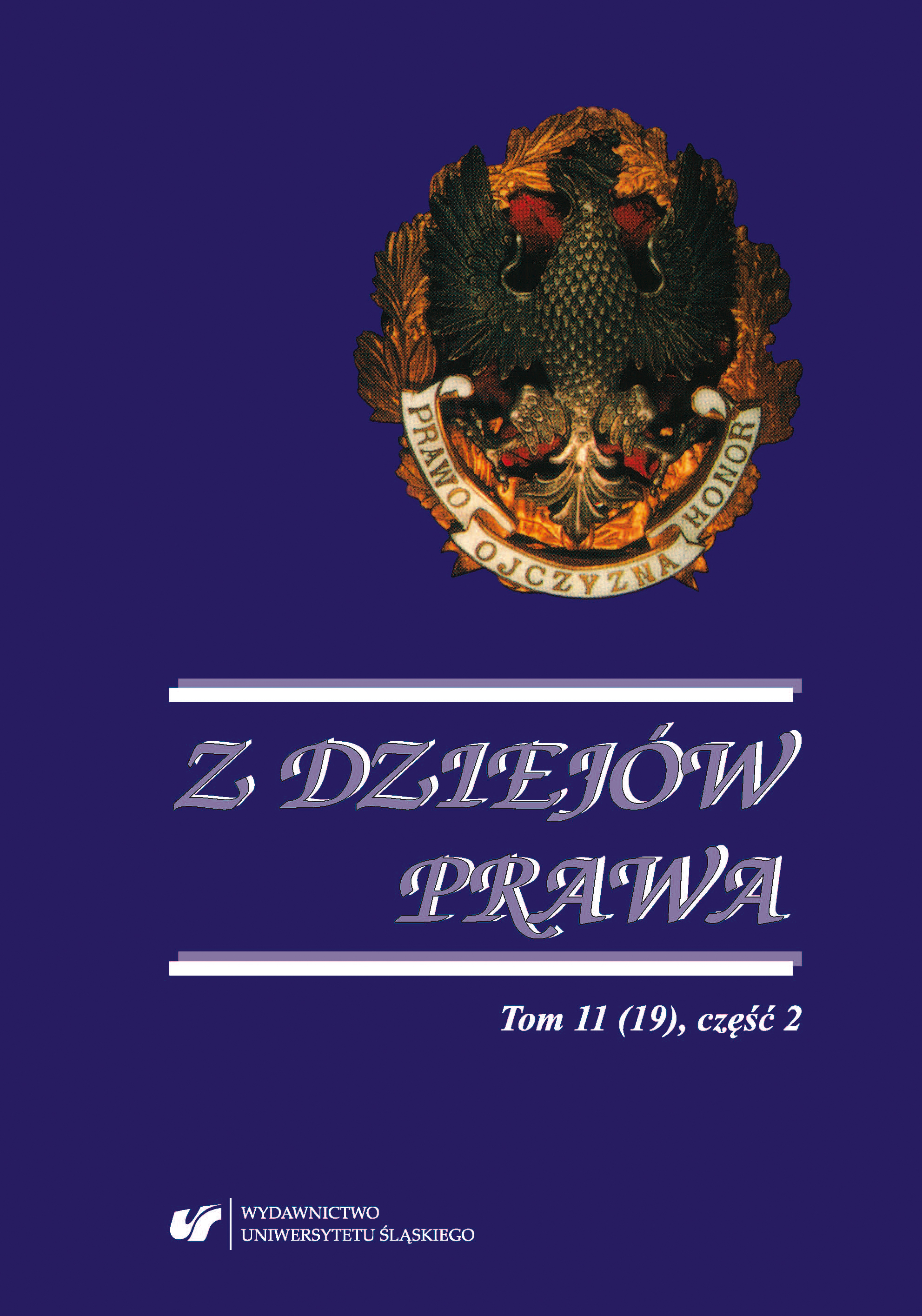Vom Enumerationsprinzip zur Generalklausel in der Verwaltungsgerichtsbarkeit: Deutschland und Polen im Rechtsvergleich
From an Enumaration Clause to a General Clause of the Administrative Judiciary: A Comparison of German and Polish Legal Systems
Author(s): Weronika SzafrańskaSubject(s): Law, Constitution, Jurisprudence, History of Law, Public Law
Published by: Wydawnictwo Uniwersytetu Śląskiego
Keywords: administrative proceeding; enumeration clause; general clause; legal public dispute
Summary/Abstract: In every state that has decided to introduce to its legal system the oversight of public administration by an administrative judiciary, one of the most crucial points appears to be the question of regulating the scope of such control. The creation of administrative courts itself does not guarantee proper and full protection of citizens against the actions of the authority. As is shown by the history of statutes of control, the legislator can de facto freely influence the judges in this matter by introducing either the so-called enumeration clause or a general clause. Both aforementioned ways of determining the scope of contesting are derived from German legislation, in which Rudolf von Gneist’s and Otto Bähr’s concepts were „competing” over the years. The first saw the administrative judiciary mainly as an institution to protect the objective law order. For the latter, who put the individual’s rights first, it was pivotal that the administrative judiciary should provide full protection of citizens against the actions of the executive power. And it was the second of the two theories that led to a gradual disappearance of determining the object of protection in statutes regarding administrative court procedures by listing the categories of affairs liable to control (enumeration) with general clauses allowing submission of conceivably all activity of public administration to the cognizance of the courts. The profound influence of ideas proposed by German administrative law theorists on contemporary views of the administrative judiciary’s role in a democratic state following principles of the rule of law is clearly visible in an analysis of Polish regulations applying to administrative court proceedings. Earlier, in the 1980 Supreme Administrative Court Act, the legislator excluded the „inconvenient” administrative cases by enumerations; this limitation presently seems impossible. This article presents how the regulations regarding the scope of control of the administrative judiciary in Poland and Germany were changing over the years. The comparative method was mainly aimed at showing the changing approach to the judicial oversight of public administration. The ideas adopted from our western neighbors were influential in the theory of administrative law not only in Poland, but also in Europe.
Journal: Z Dziejów Prawa
- Issue Year: 19/2018
- Issue No: 11 (2)
- Page Range: 295-315
- Page Count: 21
- Language: German

